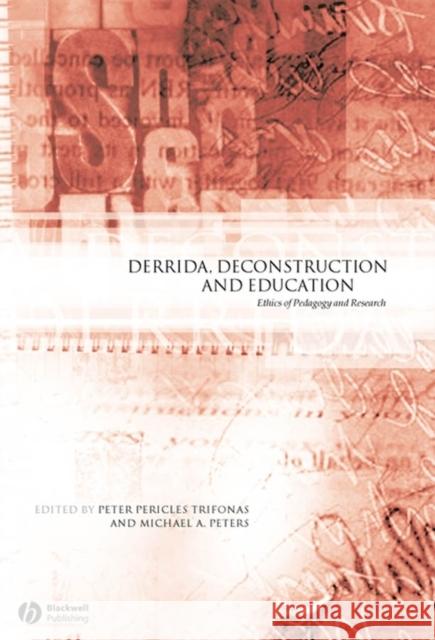Derrida, Deconstruction and Education: Ethics of Pedagogy and Research » książka
topmenu
Derrida, Deconstruction and Education: Ethics of Pedagogy and Research
ISBN-13: 9781405119535 / Angielski / Miękka / 2004 / 124 str.
A collection of original essays exploring the significance of Derrida's thought for education, pedagogy and the ethics of teaching and research.
- A collection of original essays exploring the significance of Derrida's thought for education, pedagogy, and the ethics of teaching and research
- Recognises that Derrida is a profound educational thinker, concerned with questions of pedagogy
- Written by a team of international scholars











